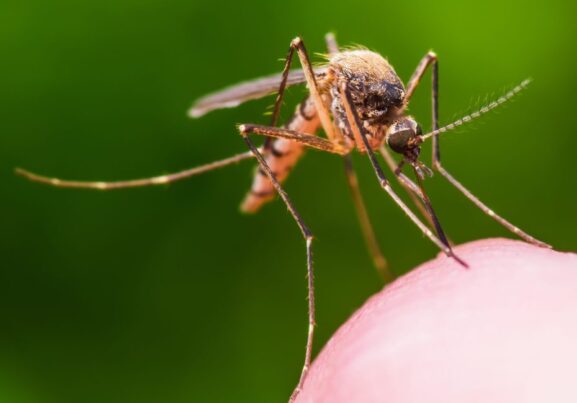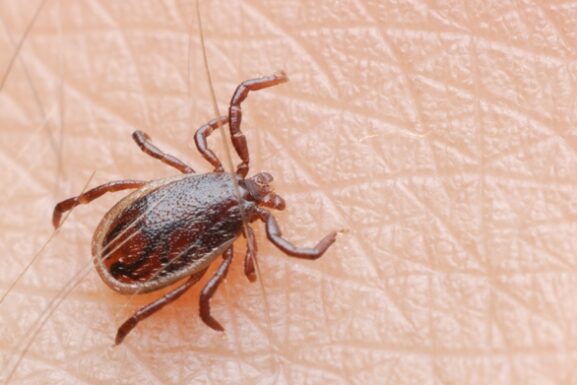Are Yellowjackets Harmful to Humans?
It is a common late-summer story: youâre enjoying a sunny afternoon picnic, and a bee buzzes around your food. Then thereâs another one⦠and another⦠and suddenly you are being swarmed. Wait, those arenât bees; they are yellowjackets! Now, everyone is running away, and your day is ruined.

Yellowjackets have a reputation for being aggressive and dangerous. Deservedly so â to a degree â but they also have some redeeming qualities. So, let’s look at what yellowjackets are and the risks of being around them.
What Are Yellowjackets?
Yellowjackets are a species of social wasp commonly found in much of North America. With their black-and-yellow-striped bodies, they are frequently mistaken for their friendlier honeybee cousins.
Most yellowjackets are slightly smaller than bees, but yellowjacket queens can be as large as ¾â long. They do not have pollen sacs like honeybees, but theyâre still beneficial as incidental pollinators of flowering plants. Yellowjackets are also helpful because they consume garden pests like aphids, caterpillars, and grubs. Other yellowjacket food sources include nectar, fruits, tree sap, and meat or fish.
Yellowjackets nest in areas protected from sunlight, wind, and rain. They tend to avoid humans but may build their nests too close for human comfort â such as in sheds, gardens, or even vents or overhangs on your home.
Boston and the surrounding areas are home to multiple yellowjacket species, including the common yellowjacket (Vespula vulgaris), eastern yellowjacket (Vespula maculifrons), German yellowjacket (Vespula germanica), and the ground hornet (Vespula vidua).
Are Yellowjackets Aggressive?
Thereâs a reason so many sports teams are named after yellowjackets. While they rarely attack unprovoked, yellowjackets become very aggressive when threatened. They can and will swarm humans or animals when they sense a threat, stinging repeatedly.
Yellowjackets are territorial, so they can become especially aggressive when they perceive a threat to their nest or queen. If you kill even a single yellowjacket, you may attract a swarm. A crushed yellowjacket emits a pheromone that signals a threat to its colony, which will then rush to attack anyone in the vicinity of their deceased comrade. This is one of several reasons to avoid dealing with a yellowjacket problem yourself.
Another reason to give yellowjackets a wide berth is that they will chase down their target while attacking. They can sting and bite, sometimes biting down to sting more effectively. Unlike honeybees, yellowjacket stingers do not remain in your skin⦠so they can sting a single victim multiple times.
Yellowjackets are also sensitive to sound and vibration, so simply working or playing near their nest may spur them to action. That is one reason why someone mowing their lawn can run afoul of yellowjackets.
How Dangerous Are Yellowjackets?

Yellowjackets have a reputation for being dangerous because of the number of stings they can inflict when they attack. A sting can be painful but usually causes only temporary redness, discomfort, and inflammation. Occasionally, fatigue, itching, or warmth at the site of the sting may occur.
Unfortunately, as with any other kind of insect bite, some individuals have serious sensitivities or allergies to yellowjacket venom and may require medical intervention.
Can yellowjackets kill you? Itâs rare, but yes⦠they can. Severe allergic reactions to yellowjacket venom can be fatal. When attacked by a nest of yellowjackets, the sheer number of stings and the toxins they inject can kill a person or animal â even in the absence of allergies. It takes around 1,500 stings to kill an adult man, but each yellowjacket can sting repeatedly⦠some large colonies consist of thousands of insects with up to 50 queens.
Fox Pest Control is Your Yellowjacket Removal Expert
Yellowjackets are beneficial pollinators that typically mind their own business. But their business becomes yours when they nest too close to your home. If you have yellow jackets on your property, it is strongly recommended you avoid the nest and do not attempt to remove them yourself. Our technicians at Fox Pest Control in Boston are experienced in yellowjacket removal and are here to help. For more information, contact us today.


